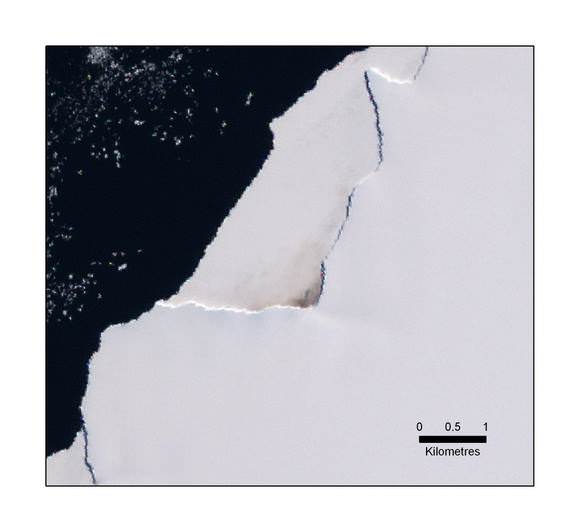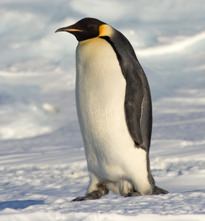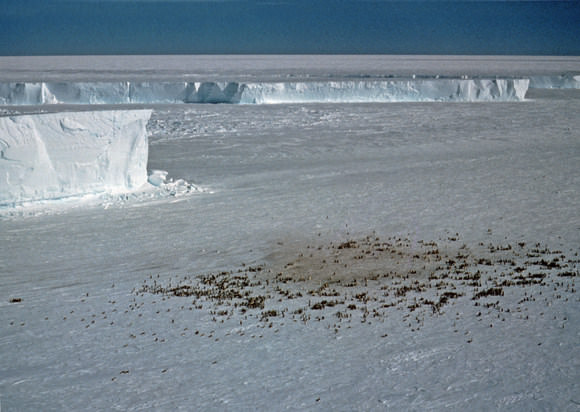This just in from the ‘things kids can giggle about’ department: British scientists are using satellite images to find colonies of emperor penguins in Antarctica. While their natural camouflage makes them blend into the shadows of the sea ice where they breed, their droppings, or guano, show up perfectly from space. “We can’t see actual penguins on the satellite maps because the resolution isn’t good enough,” said mapping expert Peter Fretwell. “But during the breeding season the birds stay at a colony for eight months. The ice gets pretty dirty and it’s the guano stains that we can see.”

Emperor penguins spend a large part of their lives at sea. During the Antarctic winter when temperatures drop to -50°C they return to their colonies to breed on sea-ice, but this is a time when it is most difficult for scientists to monitor them. Knowing their location provides a baseline for monitoring their response to environmental change.
Reddish brown patches of guano on the ice, visible in satellite images, provide a reliable indication of their location.
British Antarctic Survey Penguin ecologist Dr Phil Trathan says: “This is a very exciting development. Now we know exactly where the penguins are, the next step will be to count each colony so we can get a much better picture of population size. Using satellite images combined with counts of penguin numbers puts us in a much better position to monitor future population changes over time.”

The method helped scientists identify 38 penguin colonies — of those, 10 were new. Of previously known colonies, six had re-located and six were not found. Estimates put the total number of penguins at between 200,000 and 400,000 breeding pairs.
Source: British Antarctic Survey


A truly creative novel approach, the World needs more minds who come up with ideas like this…
….and the headline looked like this was about “Penguins from Space” 😉
I for one welcome our new Space Penguin overlords!
The article mentions that this story comes from the ‘things kids can giggle about’ department. As a 33 year old, should I feel bad about giggling at this, too?
Oh! How cute is that!
Happy Feet, anyone?
Feenix,\
We’ve had “Muppets in Space”, why not penguins in their handsome little dinner suits?
Poop poop, scatology is a serious matter.
Maybe along the lines of “Scat-based tracking of Antarctic penguin populations from Low Earth Orbit” ? And what of the implications of tracking Martian ‘scat deposits’ ??